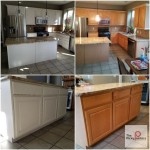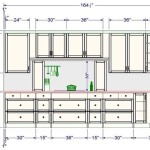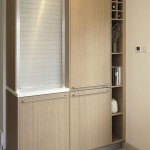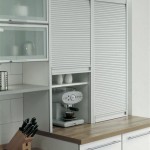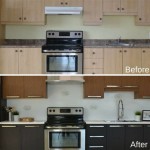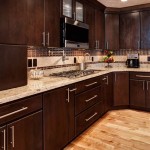Essential Aspects of Kitchen Cabinets Under Lighting
Under cabinet lighting is an essential element of any well-designed kitchen. It provides task lighting for food preparation, creates a warm and inviting ambiance, and can enhance the overall aesthetic of the space. To ensure optimal functionality and aesthetics, it is crucial to consider several key aspects when choosing and installing under cabinet lighting.
### Key Aspects to Consider1. Type of Lighting
There are three main types of under cabinet lighting: fluorescent, halogen, and LED. Fluorescent lights are energy-efficient and affordable but produce a harsh, bluish light. Halogen lights provide a warm, natural light but are less energy-efficient. LED lights are the most energy-efficient option and offer a wide range of color temperatures to suit different preferences.
2. Brightness
The brightness of your under cabinet lighting should be tailored to the specific tasks you perform in the kitchen. For general illumination, a brightness of 300-500 lumens per linear foot is sufficient. For tasks such as food preparation, a higher brightness of 600-800 lumens per linear foot is recommended.
3. Color Temperature
The color temperature of under cabinet lighting refers to the warmth or coolness of the light. Warmer temperatures (2700-3000K) create a cozy and inviting atmosphere, while cooler temperatures (4000-5000K) provide a brighter, more focused light. Choose a color temperature that complements the overall style of your kitchen.
4. Beam Angle
The beam angle of under cabinet lighting determines how wide or narrow the spread of light is. A wide beam angle (120 degrees or more) will illuminate a larger area, while a narrow beam angle (less than 60 degrees) will create a more focused spotlight effect. Select a beam angle that suits the size and layout of your kitchen.
5. Installation
Under cabinet lighting can be installed in various ways, including hardwiring, plug-in, and battery-operated. Hardwiring is the most permanent and professional option, while plug-in and battery-operated lights offer more flexibility and ease of installation. Consider the layout of your kitchen and your desired level of customization when choosing an installation method.
6. Controls
The controls for your under cabinet lighting can enhance its functionality. Dimmable switches allow you to adjust the brightness to suit different tasks and ambiance. Motion sensors can automatically turn on the lights when movement is detected, providing hands-free convenience. Remote controls offer the ability to control the lights from anywhere in the kitchen.
7. Aesthetics
In addition to its functional benefits, under cabinet lighting can also enhance the aesthetics of your kitchen. Choose fixtures that complement the style and color of your cabinets and countertops. Recessed lighting can blend seamlessly into the cabinetry, while pendant lights can add a touch of decorative flair.
Under Cabinet Lighting

What You Need To Know About Under Cabinet Lighting

5 Types Of Under Cabinet Lighting Pros Cons 1000bulbs Blog

Kitchen Cabinet Lighting Ideas For Your Home Design Cafe

Under Cabinet Lighting Adds Style And Function To Your Kitchen Decoist

Tips To Choose The Best Under Cabinet Lighting In Your Kitchen Hipcouch Complete Interiors Furniture

Why Under Cabinet Kitchen Lights Are A Bright Addition To Your Home

The Easiest Diy Under Cabinet Lighting Average But Inspired

Under Cabinet Kitchen Lighting Pictures Ideas From

How To Create Under Cabinet Lighting That Will Impress Your Guests
Related Posts

